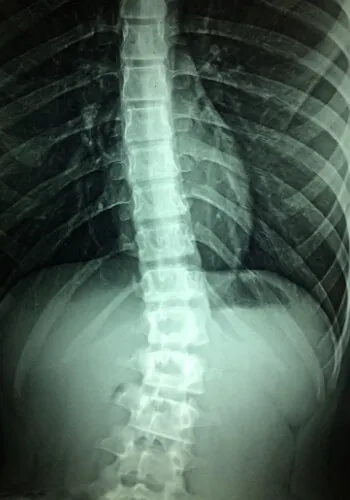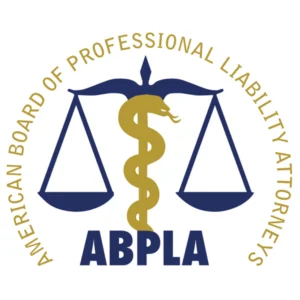One moment—a crash, a fall, or a defective product—and a spinal cord injury can change everything. These injuries often result in permanent loss of movement, sensation, and autonomy. Victims may be left facing paralysis, chronic pain, loss of bladder or bowel control, and other long-term complications that profoundly affect daily life.
For individuals in Georgia living with the consequences of a spinal cord injury, the emotional, physical, and financial toll can be overwhelming. Recovery often involves extensive medical treatment, ongoing rehabilitation, adaptive equipment, and major lifestyle adjustments. The impact extends beyond the injury itself—it disrupts employment, independence, and emotional well-being.
Georgia Lawyer for Spinal Cord Injuries
McArthur Law Firm serves Fulton County, Bibb County and Fulton County, as well as Clayton County, Cherokee County, Forsyth County, and other counties in Georgia. For more information about the McArthur Law Firm or to set up a free consultation to learn what we may be able to do to help you with your personal injury case, give us a call at one of our offices in Georgia or fill out our online contact form.
- Atlanta Office: 404-565-1621
- Macon Office: 478-238-6600
- Warner Robins: (478) 551-9901
Overview of Spinal Cord Injuries in Georgia
- Types of Spinal Cord Injuries
- How Injuries Affect Victims
- Liability in Spinal Cord Injury Cases
- Costs of Spinal Cord Injury Cases
- Frequently Asked Questions
- Additional Resources
- Hire an Attorney for Spinal Cord Injuries
Major Types of Spinal Cord Injuries in Georgia
The spinal cord is a vital part of the central nervous system. It carries messages from the brain to every part of the body. A spinal cord injury happens when the spinal cord is damaged by trauma, pressure, or a disease that disrupts communication between the brain and the body. Spinal cord injuries are grouped based on the location and severity of the damage.
Complete vs. Incomplete Spinal Cord Injury
A complete spinal cord injury means there is no function or sensation below the level of the injury. Incomplete injuries, on the other hand, allow for some movement or feeling.
Tetraplegia (Quadriplegia)
Tetraplegia, also known as quadriplegia, results from damage to the cervical spine in the neck. It causes paralysis in all four limbs and often includes loss of control over the torso, bladder, bowels, and sometimes the ability to breathe without a ventilator. Victims with tetraplegia often need around-the-clock care, mobility aids, and extensive home modifications.
Paraplegia
Paraplegia happens when the lower part of the spinal cord is damaged, typically in the thoracic, lumbar, or sacral region. It causes paralysis in the legs and lower body. Many victims still have full use of their arms and hands, which can help with daily activities and use of wheelchairs, but independence may still be limited depending on the severity.
Central Cord Syndrome
Central cord syndrome usually happens from trauma to the center of the spinal cord, often in the neck area. It tends to affect the arms more than the legs and is more common in older adults, especially after falls. A person may still be able to walk but struggle to use their hands or arms effectively.
Anterior Cord Syndrome
This injury affects the front part of the spinal cord. Victims often lose movement and pain sensation below the injury but may still be able to feel touch or position. It can result from traumatic events like car crashes or flexion injuries. These injuries are often permanent and can significantly reduce independence.
Brown-Séquard Syndrome
Brown-Séquard syndrome happens when only one side of the spinal cord is damaged. This can cause weakness or paralysis on one side of the body and a loss of pain and temperature sensation on the opposite side. It’s often seen in cases involving violence, such as gunshot or stab wounds. While rare, this type of injury can still be disabling and legally significant in personal injury claims.
How Spinal Cord Injuries Affect Victims
Loss of Bladder and Bowel Control – Spinal cord injuries often affect the nerves that control the bladder and bowels. Many victims lose the ability to control these functions and must rely on catheters or bowel programs for the rest of their lives. This issue can lead to infections, kidney problems, and the need for specialized care.
Chronic Neuropathic Pain – Neuropathic pain is a common side effect of spinal cord injury. It happens when damaged nerves send incorrect pain signals to the brain. This pain can be sharp, burning, or stabbing, and is often resistant to medication. Even when a person has no feeling or movement in certain parts of the body, they may still suffer from intense nerve pain.
Breathing and Respiratory Problems – When the spinal cord injury is high in the cervical region, it can interfere with the muscles that control breathing. Victims may need ventilators, oxygen, or respiratory therapy. These complications increase the risk of pneumonia and other infections, especially for people who cannot cough or clear their lungs on their own.
Sexual and Reproductive Issues – Spinal cord damage can interfere with sexual function, including arousal and fertility. Men may have trouble with erections or ejaculation, and women may experience changes in sexual response and fertility. These effects are deeply personal and often overlooked in early stages of treatment, but they are very real for many victims.
Pressure Sores and Infections – Because many spinal cord injury victims can’t feel parts of their bodies, they are at high risk of developing pressure sores (bedsores). These sores can become infected and may lead to serious complications, including sepsis. Preventing and treating these sores requires daily care and specialized equipment, which adds to medical expenses.
Emotional Trauma, Depression, and PTSD – Mental health effects are extremely common after a spinal cord injury. Victims often struggle with anxiety, depression, grief, and post-traumatic stress. In some cases, therapy and medication help, but the emotional impact can last for years.
Who May Be Liable For a Spinal Cord Injury
At-Fault Drivers
In car, truck, or motorcycle crashes, the driver who caused the collision may be held legally responsible under Georgia’s fault-based system. According to O.C.G.A. § 51-1-2, every person must use ordinary care to avoid harming others. If a driver was distracted, speeding, driving under the influence, or violating traffic laws, they may be liable for the injury under O.C.G.A. § 51-1-6.
Property Owners
If a spinal cord injury happens due to unsafe property conditions—like broken stairs, poor lighting, or unmarked hazards—the property owner may be liable under Georgia premises liability law. Under O.C.G.A. § 51-3-1, landowners must exercise ordinary care to keep their property safe for visitors. This includes businesses, landlords, and sometimes government agencies. Whether the victim was an invitee or licensee can affect the duty of care owed to them.
Employers and Contractors
When spinal cord injuries happen at work, the situation becomes more complex. Most on-the-job injuries are covered by Georgia’s workers’ compensation system, which limits lawsuits against employers but allows for medical benefits and income replacement. However, if a third party—such as a subcontractor or equipment manufacturer—caused the injury, the victim may still have the right to file a personal injury lawsuit. Additional analysis is needed to determine the correct parties in construction-related incidents.
Product Manufacturers
If a defective product—such as a faulty car part, safety harness, or helmet—caused or worsened the spinal cord injury, the manufacturer, distributor, or retailer may be liable under Georgia product liability law. Under O.C.G.A. § 51-1-11, companies are responsible for injuries caused by unreasonably dangerous products, even if the victim cannot prove exactly how the product failed. Strict liability can apply in these cases if the product was sold in a defective condition and used as intended.
Government Entities
In certain cases, a city, county, or state agency may be responsible for a spinal cord injury. This could involve poor road maintenance, dangerous public buildings, or negligent actions by government employees. However, suing the government in Georgia requires following specific procedures under the Georgia Tort Claims Act (O.C.G.A. § 50-21-20 ), including filing a notice of claim within 12 months. Sovereign immunity limits apply, and not all claims are allowed, so further legal analysis is often needed.
High Cost of Care for Spinal Cord Injuries
One of the most surprising facts is that spinal cord injury victims in Georgia often face more than $1 million in lifetime costs, even when the injury is incomplete. Many are young—often under 30—and may never return to work. Georgia does not cap damages in personal injury cases involving spinal cord injuries unless the claim is against a government agency. This means the financial stakes are high, and victims often underestimate how much care and equipment they will need. Home renovations, full-time aides, specialized vehicles, and lost wages can add up quickly. These long-term needs are legally compensable under Georgia law, but only if properly documented and pursued in time.
Common Questions About Spinal Cord Injuries
Can someone be sued for causing a spinal cord injury in Georgia?
Yes. If another party’s negligence caused the injury, the injured individual may have a legal claim under O.C.G.A. § 51-1-6.
What is the potential value of a spinal cord injury case?
The value depends on several factors, including the cost of medical treatment, lost wages, and the severity of the injury.
What is the statute of limitations for filing a lawsuit in Georgia?
Generally, a lawsuit must be filed within two years of the date of injury, as established under O.C.G.A. § 9-3-33.
Will insurance cover all expenses?
Not usually. Insurance may pay for some medical bills and care, but it often does not cover all related costs or long-term needs.
What happens if the injured person cannot speak or move?
A loved one may be able to serve as their legal guardian and file a lawsuit on their behalf.
Is financial help available for therapy or home care?
Yes. Compensation from a legal claim can include future medical and personal care costs, as allowed under O.C.G.A. § 51-12-7.
Can symptoms appear after the day of the accident?
Yes. Some symptoms, particularly those caused by swelling or internal bruising, may not become apparent until hours or even days later.
Is it necessary to hire a lawyer for a spinal cord injury case?
Yes. These cases are complex, and navigating Georgia’s legal system requires knowledge of strict deadlines and rules of evidence.
Can a lawsuit still be filed if the injured person was partially at fault?
Yes, provided the individual was less than 50% responsible for the accident, according to O.C.G.A. § 51-12-33.
How long does it take to resolve a spinal cord injury lawsuit in Georgia?
Timelines vary. Some cases may settle within a few months, while more serious or contested cases can take a year or longer.
Additional Resources
National Library of Medicine – Causes of Spinal Cord Injury – This source presents findings from U.S. databases about what causes spinal cord injuries. It explains how factors like age, gender, race, and time of year relate to injury causes. It also includes data on injury severity and outcomes. The source is useful for understanding trends in spinal cord injury causes and for developing injury prevention programs.
National Institute of Neurological Disorders and Stroke – Diagnosing Spinal Cord Injuries – This resource outlines how spinal cord injuries are diagnosed and treated. It explains the types and symptoms of spinal cord injuries, the diagnostic tools used, and the types of treatments given after injury. It also includes information on rehabilitation and current medical research focused on spinal cord injury recovery.
MedlinePlus – Spinal Cord Injuries Overview – This webpage provides a general overview of spinal cord injuries. It includes summaries of symptoms, causes, diagnosis, and treatment options. It also links to additional resources such as clinical trials and rehabilitation information. It is part of a broader health information service run by the U.S. National Library of Medicine.
Brain and Spinal Injury Trust Fund Commission – Facts About Spinal Cord Injury – This page includes facts about spinal cord injuries with a focus on data from Georgia. It discusses causes, risk factors, long-term complications, and injury costs. It also provides information on how often people are re-hospitalized and who is most at risk for injury.
Hire a Georgia Spinal Cord Injury Lawyer in Bibb County, Georgia
McArthur Law Firm serves the cities of Atlanta in Fulton County, Macon in Bibb County, Kathleen in Houston County, Peachtree Corners and Lawrenceville in Gwinnett County, Marietta and Smyrna in Cobb County, Stonecrest, Brookhaven and Dunwoody in Dekalb County, Albany in Dougherty County, Columbus in Muscogee County and throughout surrounding areas of the state of Georgia.
Contact one of our offices at the following numbers or fill out an online contact form to start building your case.
- Atlanta Office: 404-565-1621
- Macon Office: 478-238-6600
- Warner Robins: (478) 551-9901








